Small Business Dictionary: Holdback
Lets Get Started
How do companies pay back the merchant cash advance providers with whom they got business financing? The answer is holdback. Much more flexible than monthly payments, holdback is part of what makes an MCA such a flexible option for small businesses.
What is Holdback?
An MCA agreement will typically calculate an initial estimated payment when you receive funding. This is sometimes also referred to as The “Holdback Amount”. This Holdback Amount is estimated by considering the Holdback Percentage, a merchant’s Estimated Monthly Revenues and the number of business days in any given month.
Say what???
Merchant cash advances work by charging a fixed percentage of a small business’s daily revenue which can be in the form of credit card sales , credit card transactions or other sales. This is also known a a holdback.
This holdback is processed by the business and is automatically deducted by the provider from the merchant account. The holdback percentage is determined upfront, during the application process.
The holdback ensures that the merchant cash advance provider receives regular repayments* without significantly disrupting the business owner’s cash flow. However, it’s essential for small business owners to consider the holdback rate, factor rate, and interest rate when evaluating financing options, such as MCAs, lines of credit, or traditional bank loans. The Holdback Amount will continue to be deducted until the full advance amount, including any applicable fees, is repaid.
The repayment* period for an MCA is typically short-term and depends on the business’s sales volume. This flexibility means that during periods of high sales, the repayment* amount will be higher, allowing for a quicker payback, while during slower periods, the Holdback Amount will be lower, providing some relief to the business’s cash flow. It’s crucial for small business owners to understand the holdback concept when considering an MCA and weigh its impact against other financing options, such as term loans or lines of credit, to determine the best solution for their specific business needs and funding requirements.
How does holdback affect my business?
One of the biggest benefits of holdbacks is that it provides small businesses flexibility that other forms of funding simply can not since it is based on their financial situation and sales volume. MCAs, which utilize holdbacks, provide quick access to working capital, which can be essential for businesses facing cash flow problems or needing funds for unforeseen expenses or unexpected opportunities. The repayment* structure of an MCA, based on a percentage of daily sales volume, can offer flexibility for small business owners, adjusting repayment* amounts according to their revenue.
It is crucial for small business owners to carefully assess their business’s cash flow, sales volume, and eligibility for different financing options before deciding on an MCA. Comparing the holdback rate, factor rate, and APR of various financing options will help determine the most suitable solution to address the business’s funding needs without causing undue financial strain.
How long will the holdback last?
The length of a holdback in a merchant cash advance can vary depending on the terms of the agreement between the merchant and the cash advance provider. As mentioned, holdbacks are calculated as a percentage of the merchant’s daily revenue or credit card sales, and the holdback percentage and duration are determined by the provider when they are qualifying based on the merchant’s risk profile and other factors.
In general, holdbacks can range from a few weeks to several months. LCF is unique in that it can provide up to 12 month terms, which very few advance providers can do. Holdbacks are typically designed to ensure that the provider recovers the full amount of the cash advance plus fees and interest. For example, a provider might agree to a holdback of 10% of a merchant’s daily revenue, with a duration of 6 months. This means that the provider will withhold 10% of the merchant’s daily sales until the full amount of the cash advance plus fees and interest is repaid, or until the 6-month period has elapsed.
What happens if I can’t make the holdback payments?
One of the unique features of a merchant cash advance is flexibility. Unlike banks and other financial institution lenders that provide small business loans, with a merchant cash advance providers your payment is reconcilable if your revenue drops, so does the amount you have to pay to the funder. This means, if you are experiencing lower revenue or having cash flow issues, a reputable MCA provider like LCF will be able to work with you and discuss your options. Merchant cash advance providers want the companies they work with to be successful as their success is tied to yours.
Examples of using “Holdback”
“Since we opted for a merchant cash advance, the holdback percentage of our daily credit card sales will help us manage our repayments* more efficiently during our slow season.”
“Our holdback rate is 10%, which means that every day, the MCA provider will automatically deduct 10% of our revenue until the advance is fully repaid.”
“I need to closely monitor our cash flow to ensure that the holdback from our merchant cash advance doesn’t negatively impact our ability to cover our operating expenses and other financial obligations.”
Is this related to Credit Card Processing?
Yes. Credit card processing, or a “holdback” typically refers to a practice where a merchant account provider withholds a certain percentage of a merchant’s credit card sales for a period of time.
Have questions about how to improve your business credit or what is a receivable? Or maybe you want to know what cash flow is. We get it – there is a lot to take in which is why we’ve created business funding and finance dictionary.
*Repayment in this context describes the process of repurchasing a merchant cash advance. It does not describe the process of repaying a loan. MCAs are legally distinct from loan products.





